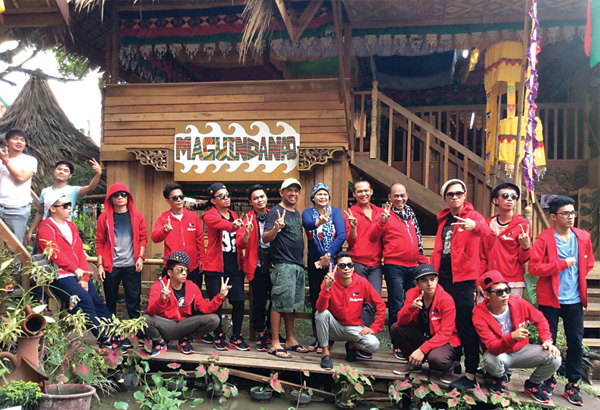COTABATO CITY, Philippines — The Autonomous Region in Muslim Mindanao (ARMM) commemorated this year’s Eid-al-Fitr with a feast as seven cultural tribes celebrated Bangsamoro culture by serving food to guests for three days.
The end of Ramadan concludes a month of fasting, renewal of faith, five daily prayers, generosity towards others and pilgrimage. “Filipino Muslims have been meditating on the pillars of the Islam religion, on how to be better humans, to be better to our loved ones, family, friends and guests,” said lawyer Laisa Masahud Alamia, ARMM executive secretary.
Cultural villages that represent ARMM’s seven tribes, Maguindanaon, Tausug, Sama, Maranao, Yakan, Iranon and Teduray, have been highlighted in a history and lifestyle exhibition called Discover ARMM in 100 Days Journey.
“We invite our fellow Filipinos and guests from all over the world to get to know these seven tribes by visiting the exhibition,” added Alamia.
Special guests included shadow-dance group El Gamma Penumbra, this year’s winner of the top-rating TV show Asia’s Got Talent.
The shadow-play act performed Choose Philippines, Peace not War and their winning entry at Asia’s Got Talent, Colors of the Wind. To show their fun side, they also performed Gangnam Style.
The group also had one show at Sharief Kabunsuan Hall which was for the benefit of NGOs and another show at ORG Quadrangle. Their visit was made possible through ARMM HEART headed by lawyer Kirby Matalam.
Based on audience attendance, their show now holds the record as the most watched event in the history of ARMM.
Other activities during the three-day feast included a weekend market that featured organic farmers and produce as well as zumba, hataw (an aerobic dance class), yoga and outdoor sports.
Discover ARMM in 100 Days Journey runs until Sept. 22 at the ARMM Compound in Cotabato City.
“The exhibition showcases the architectural signatures of these tribes as well as cultural artifacts such as agriculture and aquaculture implements,” said Alamia.
“Rituals will be staged so that the public can appreciate the uniqueness of each tribe. We will portray how a Yakan wedding is different from a Maranao wedding. Weavers from each tribe will put on a demonstration in the silong (basement) of their traditional houses. These indigenous fabrics and banig (mats) will be for sale,” she added.
At the Shariff Kabunsuan Cultural Complex, cultural groups will present dances, songs, poetry and dramas about the history of different sultanates.


